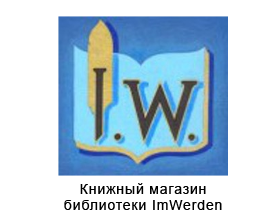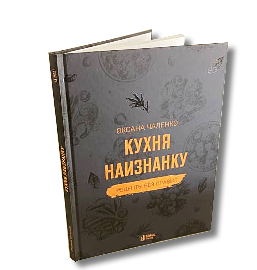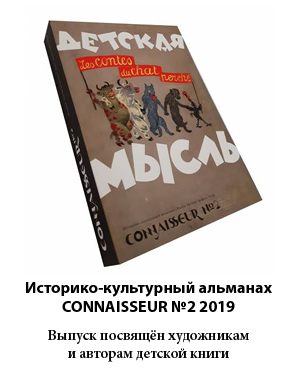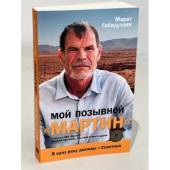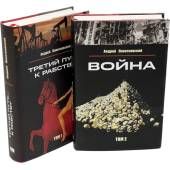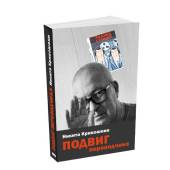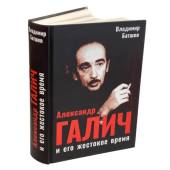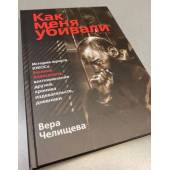
No products
Product successfully added to your shopping cart
There are %d items in your cart. There is 1 item in your cart.

Categories
- Albums (2077)
- Antique (before 1850) old books (before 1941) (582)
- Art and culture (5325)
- Audiobooks, compact discs (CD) (119)
- Autographed books (244)
- Board games (19)
- Books for school (4705)
-
Books in foreign languages
(8448)
- Books in Altai (4)
- Books in Azerbaijani (47)
- Books in Belarusian (46)
- Books in Bulgarian (2)
- Books in Dutch (2)
- Books in English (6612)
- Books in Estonian (10)
- Books in Finnish (7)
- Books in French (43)
- Books in Georgian (37)
- Books in Greek (2)
- Books in Hungarian (6)
- Books in Italian (12)
- Books in Japanese (7)
- Books in Karelian (3)
- Books in Kyrgyz language (6)
- Books in Latvian (46)
- Books in Lithuanian (7)
- Books in Norwegian (4)
- Books in Polish (14)
- Books in Portuguese (2)
- Books in Slovak (2)
- Books in Spanish (17)
- Books in Swedish (3)
- Books in Tajik (34)
- Books in the Adyghe language (3)
- Books in the Balkar language (8)
- Books in the Bashkir language (73)
- Books in the Buryat language (5)
- Books in the Kalmyk language (8)
- Books in the Karachai language (1)
- Books in the Komi language (5)
- Books in the languages of the peoples of the Caucasus (7)
- Books in the Mari language (17)
- Books in the Mokshan language (1)
- Books in the Mordovian language (3)
- Books in the Nogai language (1)
- Books in the Tatar language (101)
- Books in the Udmurt language (10)
- Books in the Yakut (Sakha) language (27)
- Books in the Yarzyan language (2)
- Books in Ukrainian (982)
- Books in Uzbek (9)
- Chuvash language books (29)
- Kazakh language books (8)
- Business. Economy (1623)
- Calendars (41)
-
Children's Literature
(10325)
- Books for parents (355)
-
Children's creativity and leisure
(901)
- Children's games. Experiments and experiments (15)
- Coloring pages (12)
- Crafts, cooking for children (6)
- Drawing for children (11)
- Make with your own hands (29)
- Modeling, application (7)
- Organization of children's parties (2)
- Origami, paper craft (5)
- Puzzles, crosswords for kids (7)
- Questionnaires, diaries, albums (1)
-
Educational and educational literature for children
(1721)
- Attention. Imagination. Memory (26)
- Basic security (4)
- Creative development (45)
- Foreign languages (101)
- General development. Manuals, reference books (82)
- General preparation for school (43)
- Introduction to the outside world (69)
- Logic. Thinking (30)
- Math and counting (42)
- Teaching reading and writing (89)
-
Educational literature for children
(769)
- Biographies for children (37)
- Books for boys (21)
- Books for girls (19)
- Culture, art, religion (48)
- Encyclopedias, reference books and other educational literature for children (180)
- History for children (86)
- Nature and the environment (243)
- Psychology. Etiquette (12)
- Science, technology, transport (54)
-
Fiction for children
(4319)
- Books for kids (111)
- Books on cartoons and films. Comics (81)
- Detectives and adventures for children (193)
- Foreign prose for children (304)
- Myths. Legends. Historical prose for children (66)
- Poetry for children (146)
- Russian prose for children (413)
- Science Fiction, Fantasy and Horror for Kids (116)
- Tales (496)
- Tales and stories about animals (143)
- Soviet children's books (894)
- Toy books (40)
- Collected works. Multivolume editions (3695)
- collection sets (50)
- Comics (53)
- Cookery (1362)
- Dictionaries. Phrasebooks (1318)
- Electronic books (10)
- Encyclopedia (1020)
- Engravings (7)
- Feng Shui (112)
- Fiction (84462)
- German and Germany (35970)
- gramophone records, vinyl (131)
- Guides (2064)
- Healthy lifestyle. Healthy eating. Fitness (1804)
- History (9791)
-
House. Life. Leisure.
(7708)
- Dom. Life (3164)
- Erotic books, books about sex, kamasutra (193)
- Hobby. Leisure (1651)
- Reference Literature (2196)
-
Sport
(953)
- Aerobics. Fitness. Yoga. Dancing (31)
- Board games (155)
- Combat and martial arts (82)
- Extreme sports (12)
- Gymnastics. Light and weightlifting (8)
- Olympic Games (13)
- Other sports (51)
- Physical culture and sport (72)
- Self-defense. Survival (20)
- Sport games (23)
- Tourism (85)
- Water sports (28)
- Winter sports (18)
- Kits (different books) (139)
- Kits (magazines) (60)
-
Magazines and newspapers
(2575)
- Architecture, interior (9)
- Astrology, esotericism (39)
- Bills (233)
- Calendars 2020 (1)
- Calendars 2021 (3)
- Cars, hunting, fishing (14)
- Celebrities, ZhZL (36)
- Children's magazines (11)
- Computer, technology (3)
- Cooking and Recipes (25)
- Crosswords, Scanwords (5)
- Editions with TV program (134)
- Entertainment magazines (7)
- Fashion, style, beauty (17)
- History (114)
- Hobbies, interests (106)
- Home, family, leisure (77)
- House, garden, vegetable garden (36)
- Literature, theatre, music (236)
- Magazines for men (210)
- Magazines for parents (2)
- Magazines for women (110)
- Medicine, health (155)
- Religion (11)
- Russian press abroad (484)
- Science, technology, fantasy (169)
- Sewing, knitting, needlework (8)
- Society, politics (637)
- Special Editions (58)
- Travel, countries (14)
- Maps, atlases (662)
- Military business. Weapons. Special services (4059)
- Miniature books (149)
- Music. Sheet music (1038)
- Postage stamps (92)
- Postcards (191)
- Posters (37)
-
Professional, educational literature
(24745)
-
Applied sciences. Technique
(2524)
- Agriculture. Veterinary medicine (40)
- Architecture (358)
- Chemical industry (104)
- Construction (445)
- Design (136)
- Energy (68)
- Engineering. Instrumentation (184)
- Food industry (19)
- Jewellery (22)
- Life safety (46)
- Light industry (39)
- Metallurgy (28)
- Mining (83)
- Nanotechnologies (5)
- Oil and gas industry (53)
- Other industries (101)
- Polygraphy (8)
- Radio engineering. Electronics. Communication (263)
- Technical Sciences (330)
- Technology of production (100)
- Timber and wood chemical industry (13)
- Transport (183)
-
Computer Literature
(471)
- Administration. Information security (5)
- Computer for … (16)
- Computer networks. Internet (23)
- Databases (8)
- Design systems (CAD/CAM) (1)
- General questions (41)
- Graphics, design, multimedia, games (27)
- Hardware (4)
- Informatics (27)
- MS Office. Microsoft office programs (11)
- Operating systems (12)
- PC work for beginners (18)
- Programming languages and environments (37)
- Humanities (8879)
-
Legal Literature
(1010)
- Civil law (54)
- Civil procedural law. Judiciary (8)
- Comments (12)
- Constitutional law. Administrative law (30)
- Criminal law (40)
- Criminology. Criminalistics (37)
- Customs law (8)
- Financial law (11)
- International law (34)
- Labor law. Social security law (9)
- Land law. Environmental law (3)
- Law enforcement agencies (23)
- Law in general. History and theory of state and law (30)
- Other branches of law (23)
- Regulatory acts. Reference literature (19)
- Right in everyday life (17)
- Textbooks and teaching aids (43)
- Workshops and practical aids (6)
-
Medicine and Health
(2430)
- Applied Medicine (41)
- Clinical Medicine. Internal Medicine (21)
- Cosmetology (20)
- Fundamentals of Medicine. Healthcare System (26)
- General pathology. General therapy (19)
- Narcology (12)
- Nervous system (29)
- Other branches of medicine (89)
- Pediatrics (52)
- Pharmacology. Toxicology (21)
- Popular and alternative medicine (1112)
- Psychiatry. Neuropathology. Sexopathology (71)
- Surgery (18)
- Monographs (1110)
- Natural sciences. Mathematics (2226)
- Social Sciences (5592)
-
Applied sciences. Technique
(2524)
- Religion. Esotericism (6369)
- Russian Abroad (books published abroad) (2590)
- Russian language (772)
- Russian language for children (Textbooks) (153)
- Soviet books until 1992 (12948)
- Yoga Books (159)
- Show All
More info
Gene Sosin (1924-2015) - one of the founders and leaders of Radio Liberation (Freedom) - worked in New York and Munich, heading the Program Department, organized international conferences and press appearances in defense of the station, invited Western figures to the radio microphone culture and politicians, building bridges between America and Russia. His memoirs are a story about the Cold War with a human face.
...Political jokes have been known in Russia since tsarist times. The most severe punishment for them was under the Soviet regime, especially under Stalin. The narrator could be sentenced to 25 years in the camps, and sometimes to death. Full of caustic irony, the jokes ridiculed the empty promises and slogans of Soviet propaganda. We often filled our programs with sharp thorns aimed at the party, the KGB, the low quality of everyday life and other aspects of reality. By uniting itself with listeners in ridiculing the hated system, Radio Liberty helped its image as a surrogate radio.
...Magnitizdat - recordings of materials not recognized by official propaganda, especially banned songs - occupied a large place in the energetic "underground" culture that flourished during the Brezhnev era It's time. From the early seventies, Radio Liberty began collecting a collection of tapes brought to the West by emigrants and transmitting them back to Soviet listeners. Three “bards” were the most popular at that time: Bulat Okudzhava, Alexander Galich and Vladimir Vysotsky. The names of Yuli Kim (half-Russian, half-Korean), Mikhail Nozhkin, Novella Matveeva, Mikhail Ancharov, Yuri Vizbor, Anatoly Ivanov and Evgeniy Klyachkin were also known.
...“Heavenly” jammers worked on the principle of radio transmitters, sending signals inside Soviet Union precisely in those areas to which our waves were directed. But due to the fact that the height of the ionosphere over Western and Eastern Europe changes during the day, the signals of Soviet transmitters sometimes dissolved in space, and then the radio could be listened to without interference. Local jammers in big cities were, of course, much stronger than those described. But reception could be significantly improved by increasing the signal strength. Soviet citizens resorted to various tricks: some tuned to the edge of the frequency band, others bought foreign receivers or export models, which had a wider frequency range than domestic ones. Craftsmen - “radio doctors” - managed to adapt even Soviet receivers to listen to foreign radio stations. Outside the city it was easier to receive a signal. Car owners drove away from the center, and those who had a dacha even recorded programs on a tape recorder.
Translated from English: Olga Polenova and Ivan Tolstoy. Under the general editorship of Ivan Tolstoy
Data sheet
| ISBN | 978-80-906779-6-8 |
| Publisher | Human Rights Publishers s.r.o., Praha |
| Publication date | 2024-02-01 |
| Number of Pages | 562 |
| Book series | Библиотека альманаха Connaisseur |
| Bookbinding | Softcover |
Same Products in Shop
| Name | Condition | Price | Company | Link |
|---|---|---|---|---|
| ИСКРЫ СВОБОДЫ. Записки ветерана радио | New | 22,00 € | View Product |
All author\'s books:
Seller Info/Map |
Seller type: Company (business)
Подробнее
Atriumstrasse 4
Leipzig, 04315
Germany
+493416870612
Rest- und Mängelexemplare





